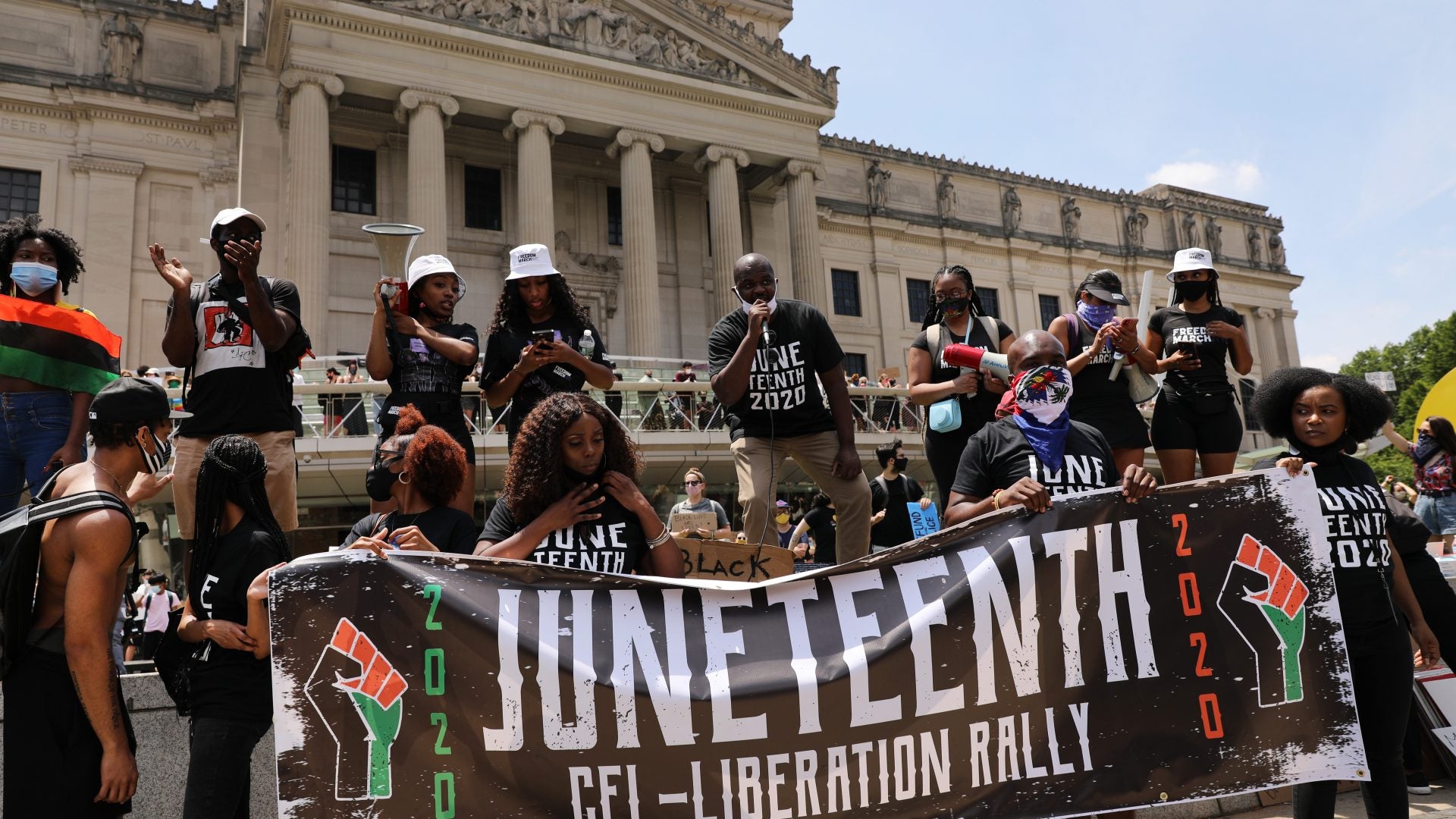
2021 is moving incredibly fast, but that hasn’t stopped one of the world’s most beautiful locations from taking time out to recognize a day important to Black people around the U.S.
Hawaii recently passed legislation designating June 19 as a day to commemorate the end of slavery in the country. Better known as Juneteenth, Hawaii will then become the 49th state to recognize the day of observance, only if the state’s governor — David Ige — signs the bill. Upon that happening, this would leave only South Dakota as the only state (unless Washington, D.C. becomes the 51st state) that doesn’t acknowledge Juneteenth as either a state holiday or a day of observance.
Earlier this year, South Dakota’s Senate passed a measure that would do just that, but the bill didn’t make it through the House. In North Dakota, the governor signed legislation on April 12 making Juneteenth a ceremonial holiday.
There are no plans from Gov. David Ige or his administration regarding the bill, but Akiemi Glenn, founder and executive director of the Pōpolo Project, said the signed bill is a way of honoring the ancestors of Hawaii’s Black people. “There’s a recognition that we’re here and that we’re part of Hawaii,” Glenn said.
Pōpolo, a Hawaiian word for a plant with dark purple or black berries, has also come to refer to Black people. As reported by the Associated Press, The Pōpolo Project is a community organization that aims to help redefine what it means to be Black in Hawaii and to help the Black community connect with one another and the larger AAPI community. Glenn said that the end of slavery didn’t solve the issues Black people continue to face in the United States, but honoring the ancestors and descendants of Black and African people can be a strong reminder of how an economy built on the exploitation of people can change.
Glenn also says Hawaii has been slow to recognize the day in part because the state’s Black population is relatively small. The U.S. Census Bureau data has Black people at only 3.6% of the population. Hawaii, which was an independent kingdom in 1865, retains its own strong identity from its history as its own nation. But in the aftermath of George Floyd’s murder, Honolulu, which recognized Juneteenth in 2020, has been the catalyst behind a shift in thinking.
“There’s been tremendous momentum building around recognizing the humanity of Black people around the world, and certainly here in Hawaii, and listening to our voices,” Glenn said. “I think it’s a good time and place — in terms of the landscape of politics and where we’re at right now as a society — to do things like this, to double down on our commitment to seeing this change come to fruition,” said State Rep. Cedric Gates, a member of Hawaii’s House of Representative, who identifies as African American and Samoan or afakasi, which is a Samoan word meaning of mixed Samoan heritage.
